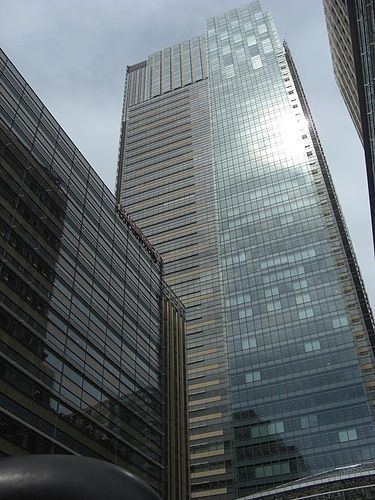|
|
Yahoo Japan
|
Infrastructure
As of 2008, 46.4 percent of energy in Japan is produced from petroleum, 21.4 percent from coal, and 16.7 percent from natural gas, 9.7 percent from nuclear power, and 2.9 percent from hydro power. Nuclear power produces 22.5 percent of Japan's electricity.
Japan's road spending has been extensive. Its 1.2 million kilometers of paved road are the main means of transportation. A single network of high-speed, divided, limited-access toll roads connects major cities and is operated by toll-collecting enterprises. New and used cars are inexpensive; car ownership fees and fuel levies are used to promote energy efficiency. However, at just 50 percent of all distance traveled, car usage is the lowest of all G8 countries.
Dozens of Japanese railway companies compete in regional and local passenger transportation markets; major companies include seven JR enterprises, Kintetsu Corporation, Seibu Railway and Keio Corporation. Some 250 high-speed Shinkansen trains connect major cities. Japanese trains are known for their punctuality. There are 173 airports in Japan, and flying is a popular way to travel between cities. The largest domestic airport, Haneda Airport, is Asia's second-busiest airport. The largest international gateways are Narita International Airport, Kansai International Airport and Chūbu Centrair International Airport. The largest ports include Nagoya Port.
|
|









